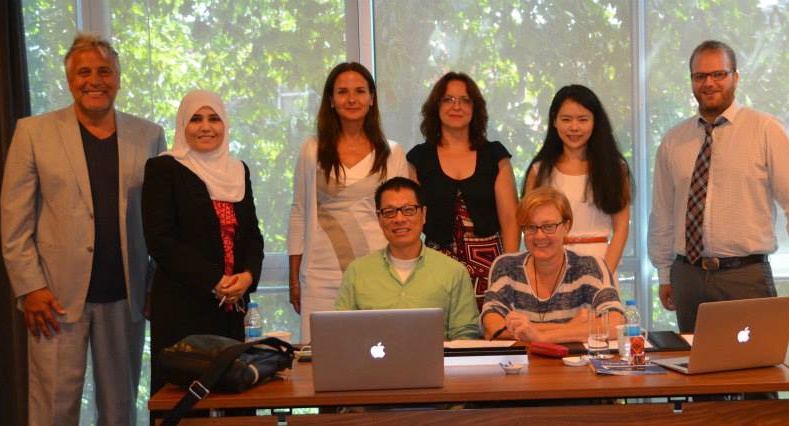Team of UCT and Chicago University psychologists report a negative association between religiousness and altruism


A team of psychologists led by Prof Jean Decety (University of Chicago) and including Dr Susan Malcolm-Smith of UCT’s Psychology Department, examined children’s altruism (via sharing) and their decisions regarding punishment for others.
Standing (left to right) Jean Decety, Randa al Mahasneh, Bilge Selcuk, Nina Bagdasarova, Xinue Zhou, Jason Cowell. Seated: Kang Lee, Susan Malcolm-Smith
*
Prof Jean Decety is currently on sabbatical at UCTParticipants were 1 170 children from six different countries – Canada, China, Jordan, South Africa, Turkey and the United States. Children from religious families were less likely to share with others, and were more punitive in response to bad behavior.
Parents and children who participated in the study were assessed separately. Parents were asked to rate their children on empathy and sensitivity to fairness. They were also asked to indicate their religion, and to give details on religious practices in the household – for example how many religious meetings are attended per week, and how many religious observances or rituals are practised in the home. Children were assessed one-on-one in their schools. Tendency to share was examined via a Dictator game. Children selected from a larger set 10 stickers that they particularly liked. They were then told that if they wanted to, they could share some of their stickers with a classmate who had not received any. Researchers turned their backs to reduce social desirability factors and the sharing was done like a secret ballot (the child placed the stickers in 2 envelopes, one to keep, one to share).
Children also watched video clips of incidents where someone was mildly harmed (pushed or bumped) by another, either deliberately or accidently. Children were asked to indicate how bad the behavior was, and how much the perpetrator deserved to be punished.
Three main groupings were identified regarding religion: Christian, Muslim, and non-religious families (other religions numbered too few to be included in analyses). As expected, parents from religious households rated their children as more empathic and more sensitive to fairness than did parents from non-religious households. However, when actual behavior was examined, children from religious families were significantly less inclined to share with others than their non-religious peers. They were also more inclined to assign greater punishment to wrongdoers than children from non-religious families (this was particularly true for children from Muslim households). Interestingly, these tendencies appeared to strengthen as children got older.
These results reveal a great deal of similarity regarding the influence of religion on children’s behavior across quite diverse countries. Importantly, this research indicates that the secularization of moral discourse does not impact negatively on children’s moral development, and may in fact be a positive factor in promoting human kindness.
This study was funded by the Templeton Foundation